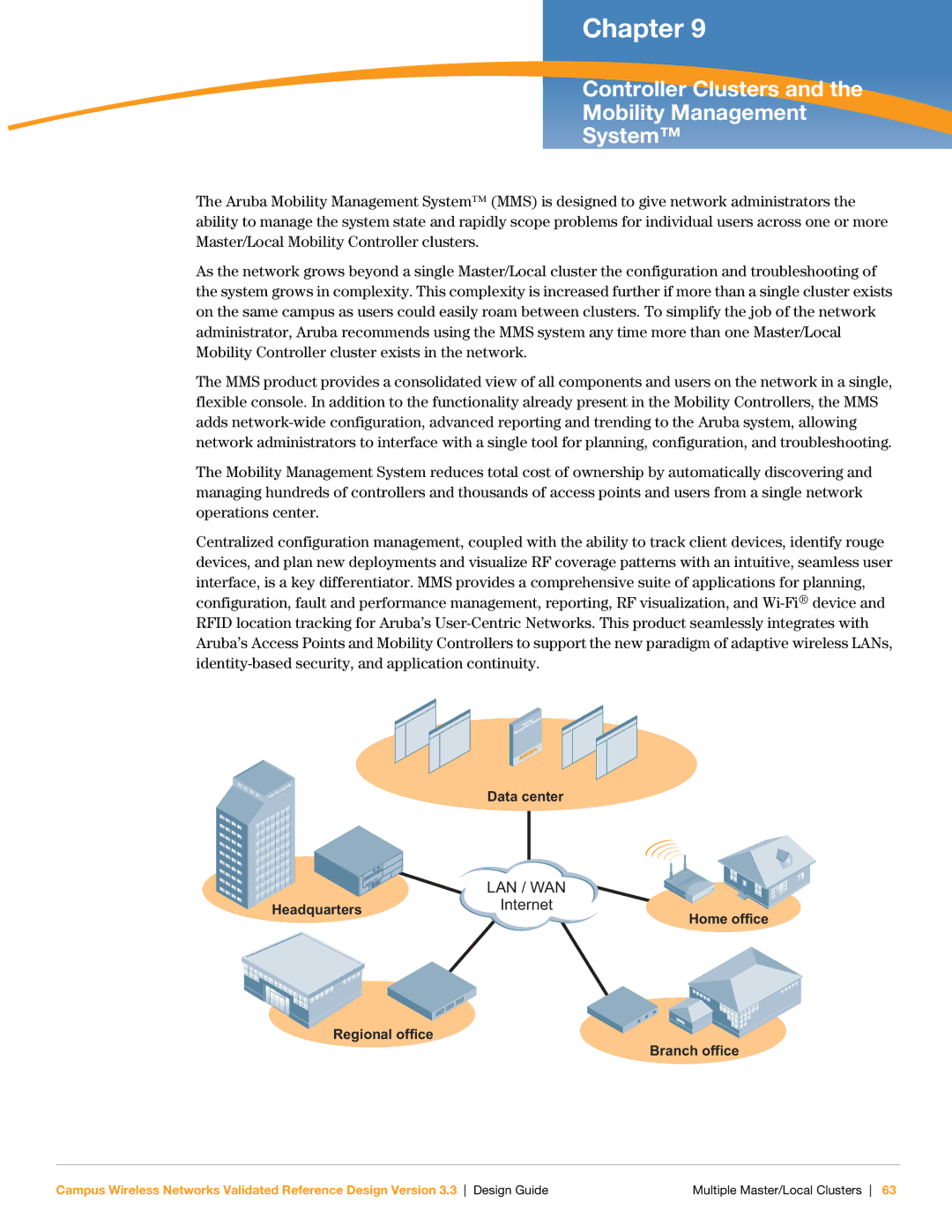
Chapter 9
Controller Clusters and the
Mobility Management
System™
The Aruba Mobility Management System™ (MMS) is designed to give network administrators the ability to manage the system state and rapidly scope problems for individual users across one or more Master/Local Mobility Controller clusters.
As the network grows beyond a single Master/Local cluster the configuration and troubleshooting of the system grows in complexity. This complexity is increased further if more than a single cluster exists on the same campus as users could easily roam between clusters. To simplify the job of the network administrator, Aruba recommends using the MMS system any time more than one Master/Local Mobility Controller cluster exists in the network.
The MMS product provides a consolidated view of all components and users on the network in a single, flexible console. In addition to the functionality already present in the Mobility Controllers, the MMS adds
The Mobility Management System reduces total cost of ownership by automatically discovering and managing hundreds of controllers and thousands of access points and users from a single network operations center.
Centralized configuration management, coupled with the ability to track client devices, identify rouge devices, and plan new deployments and visualize RF coverage patterns with an intuitive, seamless user interface, is a key differentiator. MMS provides a comprehensive suite of applications for planning, configuration, fault and performance management, reporting, RF visualization, and
Data center
| LAN / WAN | |
Headquarters | Internet | |
Home office | ||
|
Regional office
Branch office
Campus Wireless Networks Validated Reference Design Version 3.3 Design Guide | Multiple Master/Local Clusters 63 |
